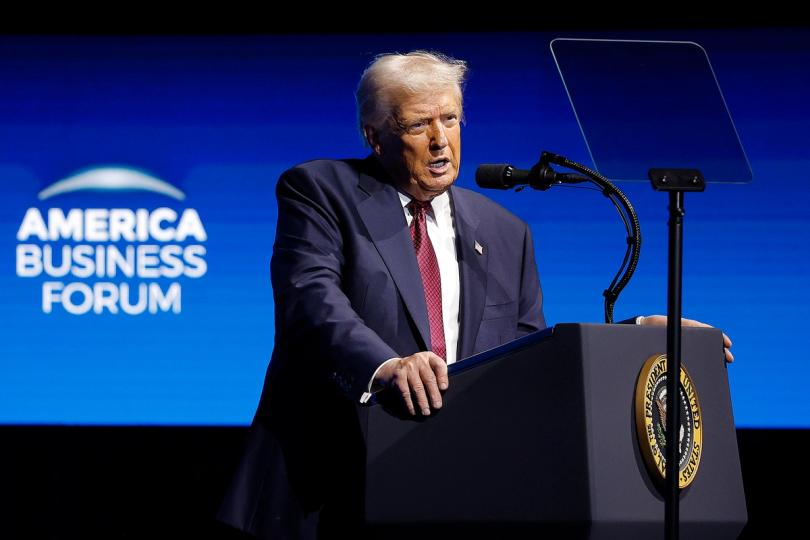When he spoke at 13 ET Wednesday, day one of the two-day America Business Forum in Miami, Florida, President Donald J. Trump urged the United States to embrace crypto and outlined an ambition for American leadership. “We’re here … to embrace a vital industry here in Miami,” he said.
Trump credited his administration with reversing the hostility in Washington: “I’ve also signed historic executive orders to end the federal government’s war on crypto. Crypto was under siege. It’s no longer under siege.”
He argued that the sector is significant and supported by business leaders: “Because it’s a big industry. It’s a big industry and I have a lot of people who are great people, great business people. They’re in other companies, but they’re also in crypto.”
He linked digital assets to the US currency: “And it takes a lot of the pressure off the dollar. It does a lot of good things, but we’re into it.” He contrasted his stance with the previous administration: “Biden was evil on crypto. They went after these crypto guys. It was terrible. They were under indictment.” (Trump then disappeared into his own legal battles, which were not about crypto.)
Trump framed the goal as national leadership: “We’re making the United States the Bitcoin superpower, the crypto capital of the world,” and tied his tech message to AI by calling the United States “the undisputed leader in artificial intelligence.”
Abroad, he warned of competitive pressure: “And don’t forget, if we don’t do crypto properly, China … China wants to do it. They start it, but they want to do it. Other countries want to do it. If we don’t do it properly – it’s a big industry.”
His Miami remarks emphasized positioning over new details; he did not announce new timelines or agency directives.
This year, the White House took steps consistent with this stance, including creating a strategic bitcoin reserve and a U.S. repository of digital assets using coins obtained through federal seizures and forfeiture; however, there have been no public bitcoin purchases.
A stablecoin framework developed via the GENIUS Act, which was signed into law on July 18, while broader market structure legislation continues to make progress. Trump’s team has also rejected a digital currency from a US central bank, presenting cryptopolitics as compatible with the primacy of the dollar.



